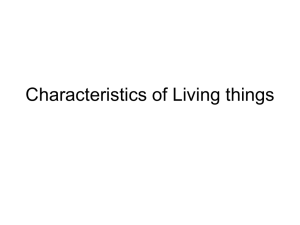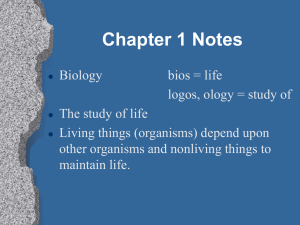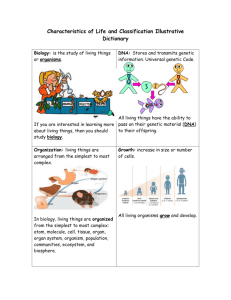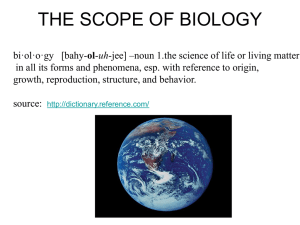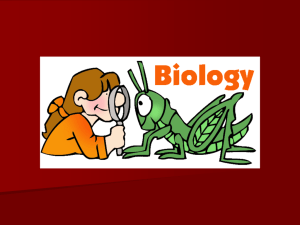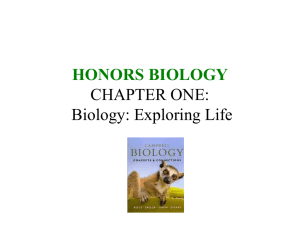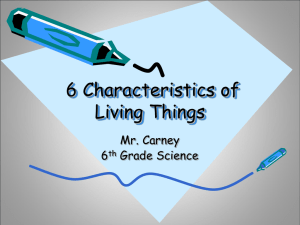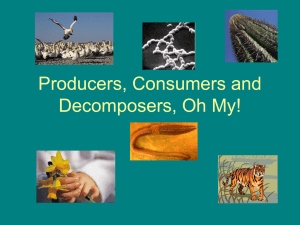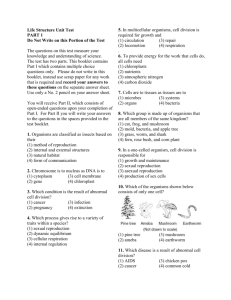Unit 14 vocabulary words
advertisement
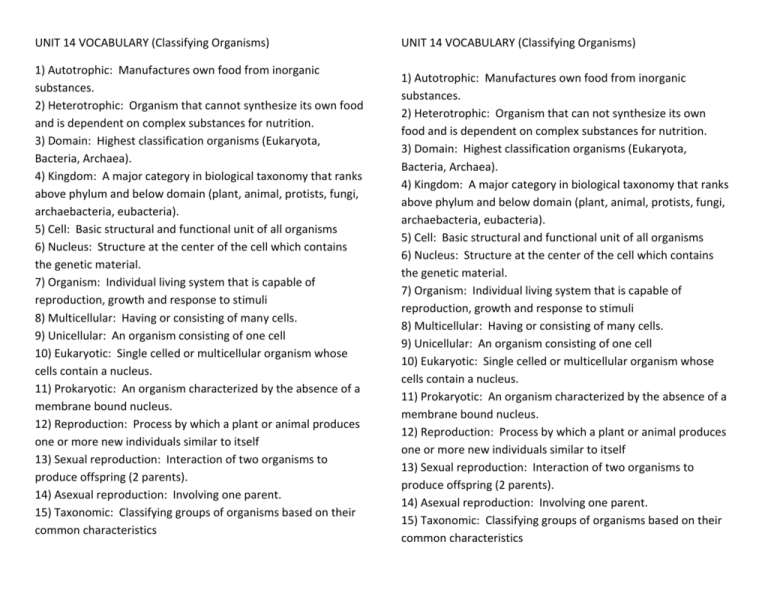
UNIT 14 VOCABULARY (Classifying Organisms) 1) Autotrophic: Manufactures own food from inorganic substances. 2) Heterotrophic: Organism that cannot synthesize its own food and is dependent on complex substances for nutrition. 3) Domain: Highest classification organisms (Eukaryota, Bacteria, Archaea). 4) Kingdom: A major category in biological taxonomy that ranks above phylum and below domain (plant, animal, protists, fungi, archaebacteria, eubacteria). 5) Cell: Basic structural and functional unit of all organisms 6) Nucleus: Structure at the center of the cell which contains the genetic material. 7) Organism: Individual living system that is capable of reproduction, growth and response to stimuli 8) Multicellular: Having or consisting of many cells. 9) Unicellular: An organism consisting of one cell 10) Eukaryotic: Single celled or multicellular organism whose cells contain a nucleus. 11) Prokaryotic: An organism characterized by the absence of a membrane bound nucleus. 12) Reproduction: Process by which a plant or animal produces one or more new individuals similar to itself 13) Sexual reproduction: Interaction of two organisms to produce offspring (2 parents). 14) Asexual reproduction: Involving one parent. 15) Taxonomic: Classifying groups of organisms based on their common characteristics UNIT 14 VOCABULARY (Classifying Organisms) 1) Autotrophic: Manufactures own food from inorganic substances. 2) Heterotrophic: Organism that can not synthesize its own food and is dependent on complex substances for nutrition. 3) Domain: Highest classification organisms (Eukaryota, Bacteria, Archaea). 4) Kingdom: A major category in biological taxonomy that ranks above phylum and below domain (plant, animal, protists, fungi, archaebacteria, eubacteria). 5) Cell: Basic structural and functional unit of all organisms 6) Nucleus: Structure at the center of the cell which contains the genetic material. 7) Organism: Individual living system that is capable of reproduction, growth and response to stimuli 8) Multicellular: Having or consisting of many cells. 9) Unicellular: An organism consisting of one cell 10) Eukaryotic: Single celled or multicellular organism whose cells contain a nucleus. 11) Prokaryotic: An organism characterized by the absence of a membrane bound nucleus. 12) Reproduction: Process by which a plant or animal produces one or more new individuals similar to itself 13) Sexual reproduction: Interaction of two organisms to produce offspring (2 parents). 14) Asexual reproduction: Involving one parent. 15) Taxonomic: Classifying groups of organisms based on their common characteristics

